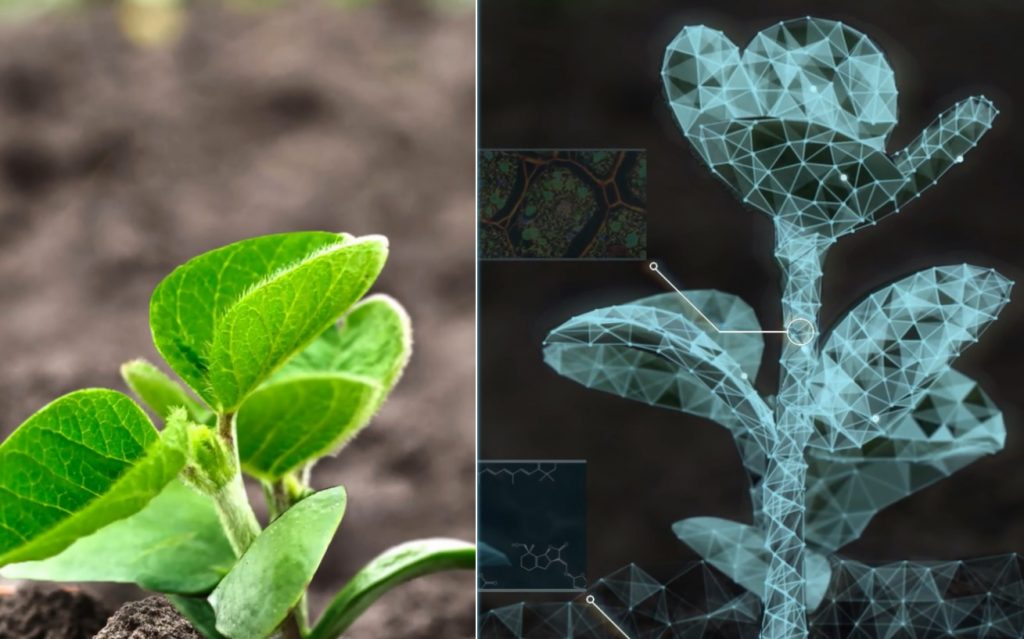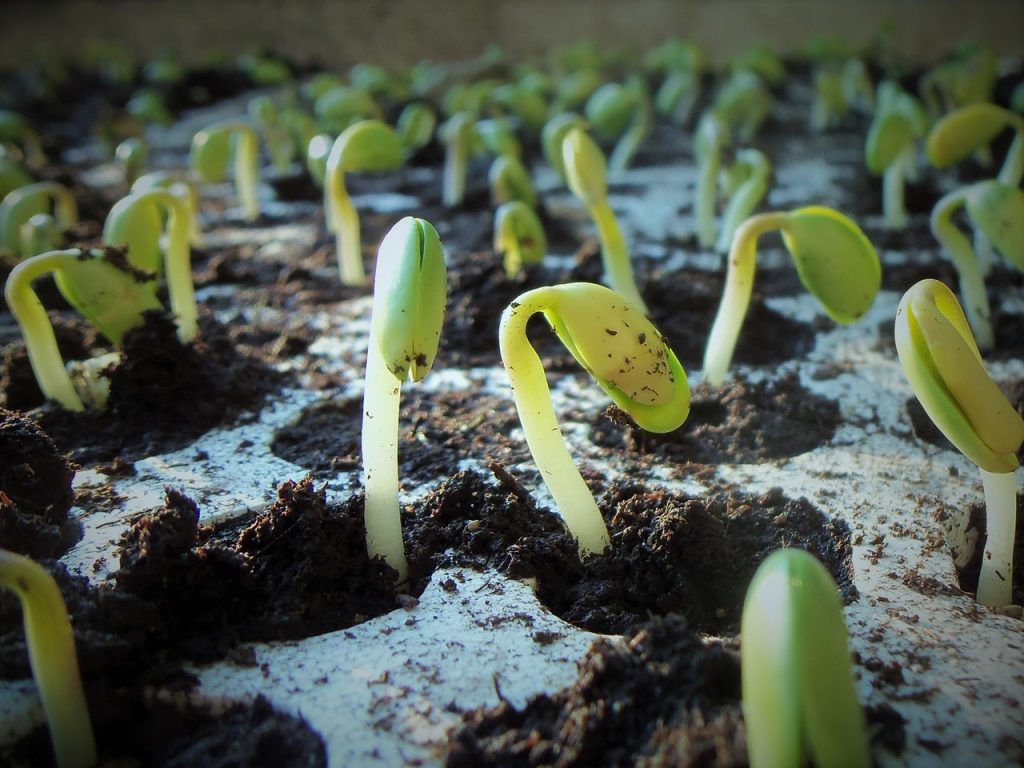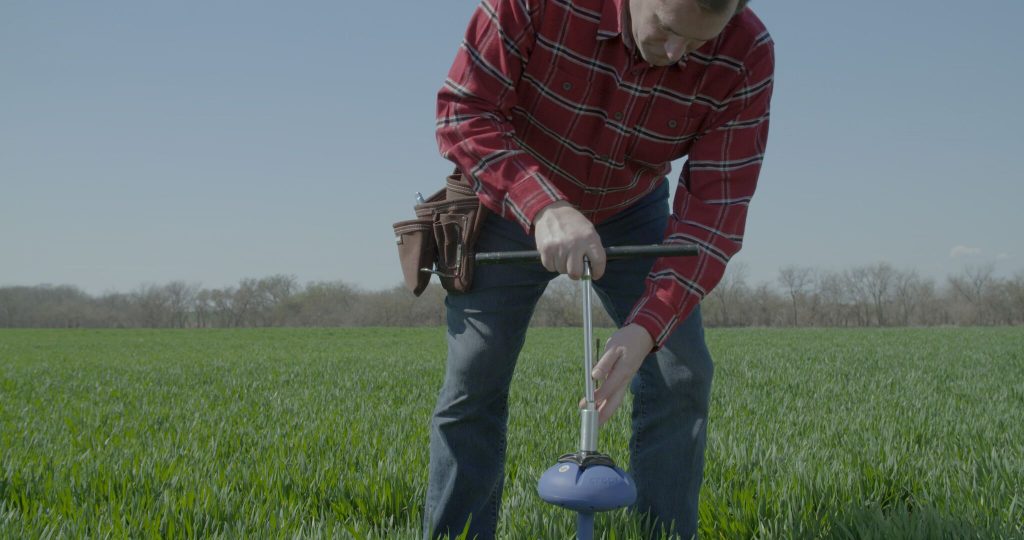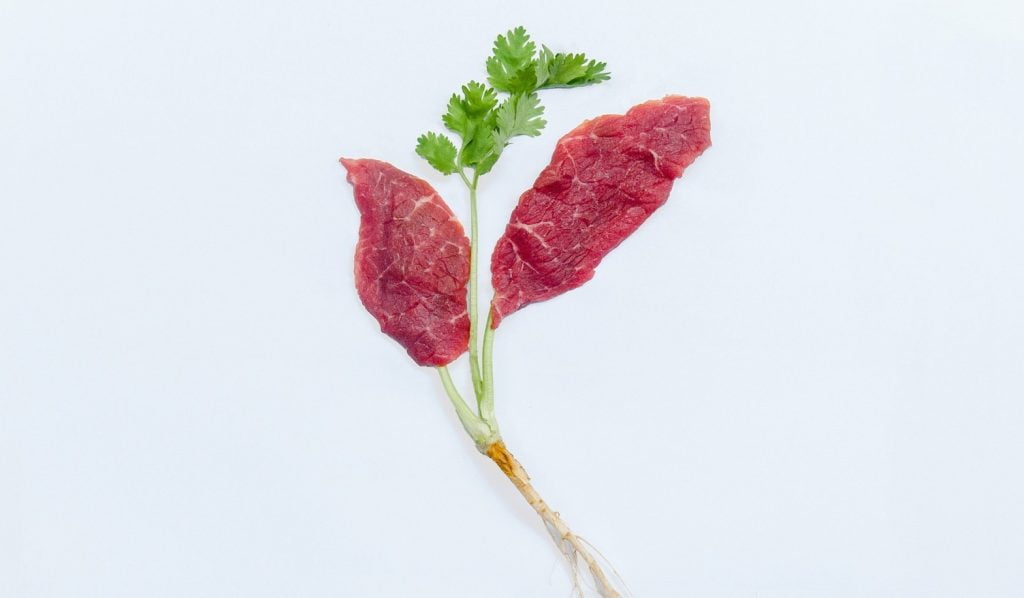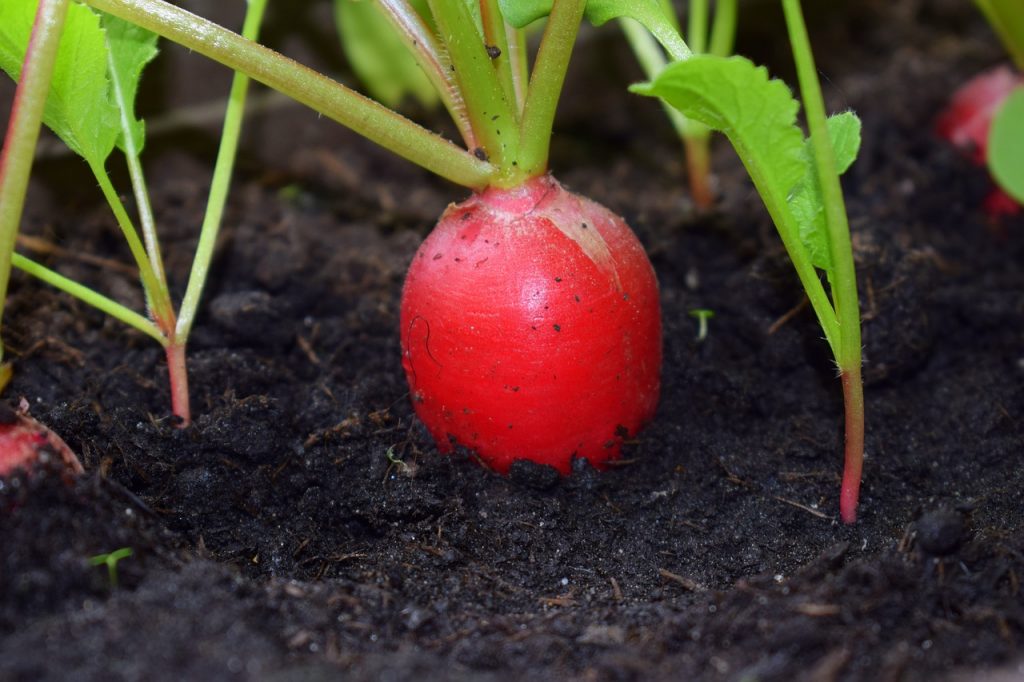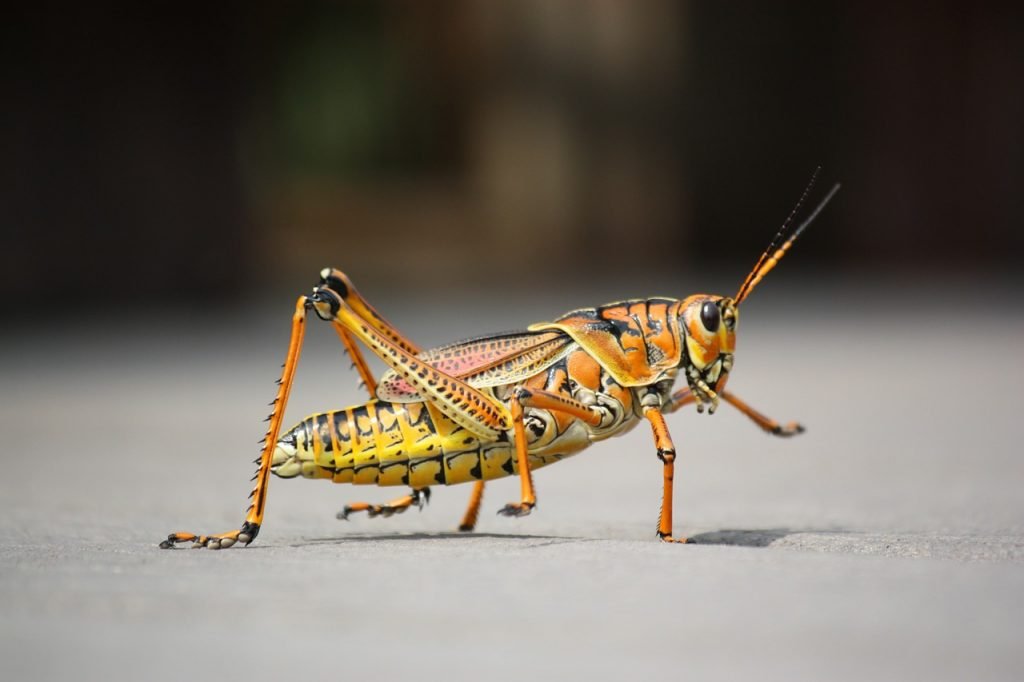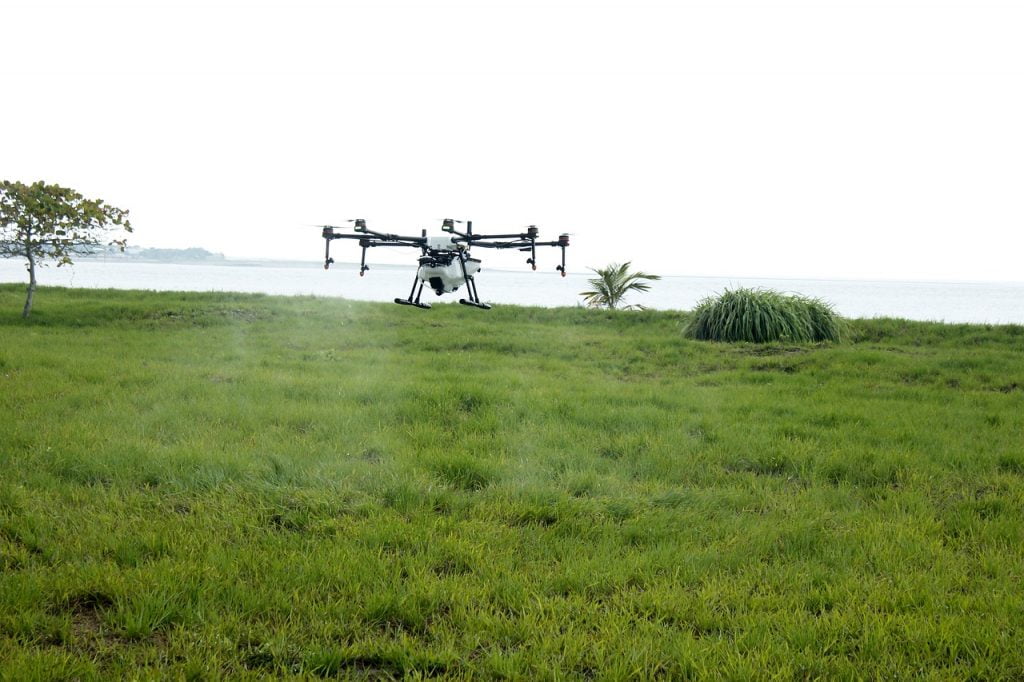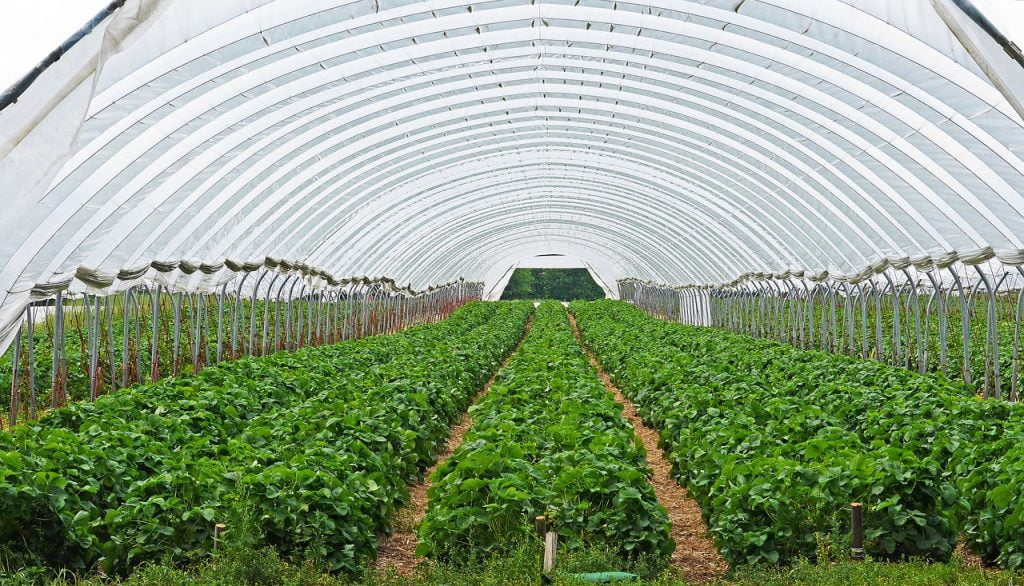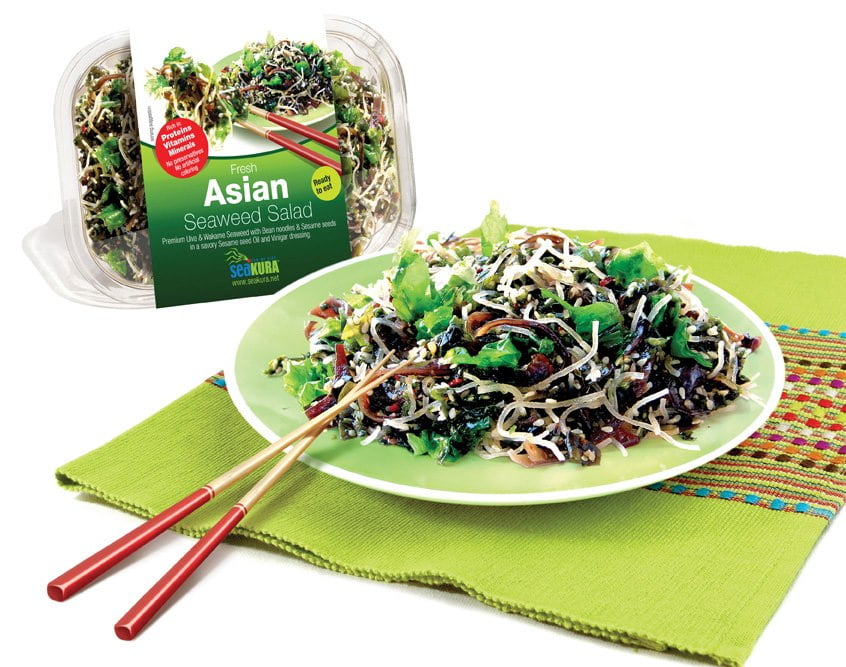Food and agriculture were the focus in Israel’s tech ecosystem this week, as representatives from the world’s governments, manufacturers, farmers, academic institutes, investors and entrepreneurs gathered in Tel Aviv to get a taste of the latest innovation in these industries, and the research and development that connects them
The 20th annual AgriTech Israel 2018 exhibition and conference opened on Tuesday at the Tel Aviv Fairgrounds, drawing thousands of participants, including 1,500 from India alone. The three-day event is one of the world’s most important exhibitions in the field of agricultural technologies and over 50 government delegations and 80 business delegations took part.
Also on Tuesday, industry leaders, entrepreneurs, investors and academics flocked to the Tel Aviv Port for AgriVest, an investment summit that showcases Israel’s newest and most promising ag-tech startups. A live startups competition was won by Israeli startup WeedOUT, which developed a novel biological herbicide to fight off resistant weeds.
But the week started out with FoodTechIL, an event aimed at showcasing startups pioneering new directions in the agricultural, food and beverage industry.
In fact, FoodTechIL kicked off as news of the $7.1 billion buyout by American multinational International Flavors & Fragrances of Israeli company Frutarom hit headlines. In April, Frutarom and the Israel Innovation Authority announced the opening of FoodNxt, a fully equipped innovation lab for food-tech startups, in Israel’s north.
“Israel being a ‘startup nation’ is not just a cliché,” says Yoni Glickman, President of Frutarom Natural Solutions. “Startups have become the growth engine of the food industry, and Frutarom, through FoodNxt, is working to accelerate this innovation – by providing know-how, processes, technologies, and expertise to help overcome challenges, nurture development, and launch new products into the global market.”
But as the FoodTechIL event showed, Frutarom is not Israel’s only startup changing the food-tech space.
“At the first FoodTechIL conference there were 100 participants, and today 1,000 people gather,” Strauss Group president and CEO Gadi Lesin, President and CEO, told The Marker. “This is part of our vision, to establish and lead the international community in the field of foodtech, we are no longer in the theory stage, it took us four years to establish the foundations of the global community, and today the pyramid has been reversed — instead of Israeli companies running after international conglomerates, they’re coming here. This is because of Israel’s successes in the space.”
Israel is home to some 750 active startups and companies in the food tech and agriculture tech industries, according to a report this week by the Israeli non-profit Start-Up Nation Central.
“Israel has always answered its own agricultural challenges, and in the process has created a large produce export industry… But the real comparative advantage of this small country with its proven agricultural know-how lies in exporting technology, often tested first by Israel’s own farmers,” writes Fredrik Liljedahl, an Agritech analyst at Start-Up Nation Central.
Israel is renowned for revolutionizing irrigation methods and greenhouse cultivation in adverse climate conditions. The country also has the world’s highest reused wastewater rate and the most advanced agriculture technologies for water heating and electricity generation.
“The world trusts what Israel is doing because it sees the results. Israel has been good at feeding itself,” Karin Kloosterman, a serial entrepreneur and founder of agri-tech startup FluxIoT, tells NoCamels.
“Israel has a great reputation because of companies like Netafim, which has distributors all over the world. As such, people have ‘seen’ Israel in their towns and villages and they’re very excited to come and see these innovations first-hand. Agri-tech is about very practical solutions: pipes, pumps and valves. But these are the pipes, pumps, valves and compressors that work,” says Kloosterman. “Government groups are coming [to Israel] because they want to buy.”
The multibillion-dollar global agricultural industry is in need of disruption. While many farmers are still conservative about taking risks on new technologies, their end-goal is to make farming more efficient and thus better sensors, robotics, AI or data science are a lifeline.
In that spirit, let’s look at 12 Israeli startups in the food and agri-tech sectors with winning recipes for 2018.
1. Evogene: Protecting plants the natural way
Evogene, a biotechnology company aimed at improving crop performance, secured agriculture headlines this week in announcing a phase advancement for its insect control collaboration project with Marrone Bio Innovations, a bio-based pest management and plant health products headquartered in California.
The companies use plant genomics and biotechnology to create plants that are resistant to pests.
“We are very pleased to announce an additional phase advancement in our insect control program, with initial insect control protein genes against the Hemipteran insect order. With this latest achievement, we now have candidates advanced to Phase I for all major pest insect orders: Coleoptera (beetles), Lepidoptera (caterpillars) and Hemiptera (sucking bugs). The results we achieved in model plants are progressing to the next step – soybean validation in greenhouse and field trials and could also be applicable to cotton,” Dr. Arnon Heyman, Evogene VP and GM, Ag-Seeds said in a May 9 press statement.
2. ADAMA Agricultural Solutions: Taking fungicide seriously
ADAMA Agricultural Solutions is another leading crop protection company, with an innovative mixture fungicide for soybean rust. This liquid formulation, called CRONNOS TOV, provides effective protection for soybean diseases.
ADAMA recently announced that it is launching the distinctive fungicide in Brazil, the world’s largest soybean market.
“Soybean rust has developed resistance over the years and there was an urgent need to create a viable, long-term strategy for soybean fungicides,” Rodrigo Gutierrez, VP ADAMA Brazil said in a statement. “With its unique liquid formulation, CRONNOS TOV is creating a new age of combating this devastating disease and will become a vital solution for Brazilian farmers in protecting their soybean yields and livelihood.”
ADAMA solutions reach farmers in over 100 countries, providing them with solutions to control weeds, insects and disease, and improve their yields.
3. CropX: Bringing intel to soil management
CropX, the agriculture analytics company that increases crop yield while saving on water and energy, snagged headlines this month upon debuting its soil intelligence platform, a combination of cloud-based agri analytics software and advanced soil sensor technology.
Moreover, ICL, a leading global specialty minerals and specialty chemicals company, on May 2 announced an investment and a strategic partnership with CropX – its first collaboration with Israel’s startup community in the field of precision agriculture.
“CropX offers farmers a unique product and technology, which will provide a significant added value to our product portfolio in the fertilizers field… CropX’s capabilities and its direct interface with farmers are well-suited to ICL’s new strategy, as it will help promote premium, technology-based products, which offer the most focused and precise nutrition solutions to farmers,” said Eli Amon, Executive VP, Head of ICL Specialty Fertilizers.
4. Aleph Farms: Taking clean meat to new heights
Clean meat company Aleph Farms is a food-tech company to watch. This month the company announced that it is developing a new way to grow clean meat and still keep its texture, taste, and eating experience as its traditional equivalents.
“It has been a major hurdle to mimic meat’s many properties, such as texture, shape, juiciness, and flavor,” says Prof. Shulamit Levenberg, co-Founder and chief scientific officer of Aleph Farms. “Our use of the four cell types found in conventional cuts of meat, including vascular and connective tissues, is the key to a product that will be closer to the beef that people crave.”
Aleph Farms said in a statement that its 3D technology enables it to mimic traditional cuts of beef in both structure and texture, but without beef’s huge environmental impact, its heavy resource requirements, or its contribution to climate change.
Aleph Farms (previously Meat-the-Future) was co-founded in 2017 by Israeli food-tech incubator The Kitchen, a part of the Strauss Group and the Technion.
Bruce Friedrich, Executive Director of The Good Food Institute (GFI), a nonprofit promoting the clean meat industry, is excited about Aleph Farms’ vision for the future. “GFI’s objective is to help leading scientists and entrepreneurs apply their expertise to clean meat development. Israel’s startup mindset allows the team at Aleph to leverage this rich history and technological leadership to create breakthroughs in clean meat,” he says.
Israel’s “clean meat” startups have generated much interest in recent months. Israeli biotech firm Future Meat Technologies raised $2.2 million last week in a seed round led by Tyson Ventures, the venture capital arm of Fortune 100 company Tyson Foods, one of the world’s largest food producers.
SuperMeat, meanwhile, an Israeli producer of lab-grown poultry extracted from the stem cells of a live chicken, raised over $3 million earlier this year.
5. Yofix Probiotics: Vegan but soy-free
Visitors to FoodTechIL tasted all sorts of new products. One of the options included Yofix Probiotics yogurts. These vegan and soy-free fermented plant-based prebiotic and probiotic alternatives are already on sale in Israel.
With veganism and plant-based eating on the rise, Yofix is a must-watch company.
Near the end of 2017, the company raised a $2 million Series A round led by Israeli food and beverage manufacturer Strauss Health, with individual investors from the US, the UK, and Israel.
Yofix is one of several startups participating in The Kitchen Hub, Strauss Group’s FoodTech incubator, supported by the Israeli Innovation Authority.
Near future plans include adding Yofix plant-base yogurt drinks, desserts, frozen yogurt, ice cream to supermarket shelves.
6. Rootility: Root-focused plant-breeding
Rootility, a local company creating smart root-focused plant breeding methods to increase crop yields, announced a $10 million Series C funding round this week, led by UK-based ADM Capital’s Cibus Fund, with existing investors GreenSoil Investments, a leading Israeli agro and food technologies fund, and Middleland Capital, a prominent North American agri-tech VC firm.
Rootility’s GMO-free breeding techniques are used to keep plants healthy despite environmental changes like heat, cold, or soil-borne diseases.
Rootility is backed by some of the country’s top names in agriculture, including Dr. Rafael Meissner, Founder & CEO of Rootility, and co-founder of Evogene. Meissner holds a Phd in plant genetics and has years of breeding expertise. Rootility chairman is Gad Elasar, former CEO of the Hazera Genetics – world leader in the breeding, production and marketing of vegetable and field crop hybrid seeds – and former Head of International activities, Hishtil Nurseries – a global nursery corporation which specializes in the production and sales of vegetables, herbs, seedlings and young plants.
7. Hargol FoodTech: Grasshopper protein
Eating insects has gone mainstream and Hargol FoodTech, a 10-time winner of innovation competitions, is Israel’s startup looking to get the world eating its grasshopper protein powder. Hargol is said to have already secured $5 million from interested consumers in the US and Europe.
The company, founded in 2014, says it has the world’s first commercial grasshopper farm and uses “an innovative cage structure for vertical farming, which enables the production of 10 times more biomass per square meter and improved sanitation,” according to a Start-Up Nation Central report.
The company says its grasshopper products comprise high nutrient content including 70 percent protein, all essential amino acids, lipids, iron, zinc, and chitin.
Hargol also notes that grasshoppers are both kosher and halal.
“With the technology we developed farming grasshoppers is so efficient and modular we could feed the entire world,” the company’s CEO Dror Tamir told a Food and Tech conference hosted by Calcalist and by Israel’s Bank Leumi this year.
In the same vein, Israeli startup FlyingSpark, which makes fruit fly larvae protein powder, has also generated some attention, betting on an increased desire and need for environmental sustainability. In September, the company announced that it was one of 10 startups from around the world to join the first accelerator run by Swedish furniture giant IKEA.
8. DouxMatok: Aiming to reduce sugar consumption
DouxMatok, a developer of targeted flavor delivery technologies, came into 2018 with a funding round of $8.1 million to commercialize its patented sugar reduction solution by the end of this year. According to the company, tests conducted by Food & Beverage multinationals have confirmed that, when using DouxMatok sugars, they can reduce up to 40 percent of the sugar content in their products while retaining the same taste profile.
“We hope that DouxMatok will become a trusted leading brand in the efforts to reduce sugar consumption to healthier levels, so we can continue to enjoy the foods we love,” said Eran Baniel, CEO and co-founder of DouxMatok.
DouxMatok enhances the perception of sweetness. “DouxMatok enables food manufacturers for the first time to provide their consumers with the exact same taste they know and love, but with significantly lower sugar content – that is game-changing for the industry,” said Gil Horsky, an executive in the food industry.
9. Taranis: Bringing more precision to agriculture
Taranis, a Tel Aviv-based precision agriculture company, uses aerial imagery, field sensors, satellite imagery, weather forecast and data from its field scouting application to predict and prevent crop disease and pest losses.
Earlier this year, Taranis and Agricen, a plant health technology in Texas, received a grant from the Israel-US Binational Industrial Research and Development (BIRD) Foundation to collaborate on the advancement and commercialization of a new precision agriculture system for crop abiotic stress detection and prevention.
Abiotic stresses — drought, salinity, extreme temperatures and nutrient deficiency — and other stress factors result in an estimated $220 billion in lost crop value per year.
“This collaboration will overcome one of the highest challenges in agriculture by merging the Taranis platform with Agricen’s proven biostimulant technologies to effectively and efficiently address abiotic stress in row crops for fields of any size,” said Michael Totora, president and CEO of Agricen. “When complete, it will be able to be replicated across fields in any geography with confidence and speed, saving growers significant time and resources while increasing plant health and total crop yield.”
10. Skyx: Agricultural drones and robotics technology
Founded in 2017, the Ramat Hasharon-based Skyx developed a modular swarm of autonomous drones for spraying crops. But the company aims to have its software technology, which allows one operator to control a fleet of drones, be compatible with any commercially available hardware.
“We’re not a drone company,” founder Eylon Sorek told AgFunder News in November. “The vision that we have is that our software will become an operating system that includes mission planning and mission control in real time and autopiloting for the entire fleet.”
Skyx recently raised an undisclosed seed funding round to commercialize its software. It competed in the startup contest at AgriVest this week.
11. Roots: Assisting the world’s small farms
Roots Sustainable Agricultural Technologies, listed on the Australian Stock Exchange, is showcasing its two proprietary agricultural solutions for the world’s smallholding farmers – Root Zone Temperature Optimization and Irrigation By Condensation (IBC), at AgriTech this week.
The solar or wind-operated Irrigation by Condensation system works “off the grid” and is capable of sustaining entire growth cycles of food, according to the company.
Boaz Wachtel, the inventor of the IBC technology and a co-founder of Roots said that the patented technology “has the ability to play a tangible role in benefiting many of the two billion people across the world who depend on these smallholder farms for their livelihoods, by providing a more sustainable living for farmers, families and the communities in which they operate. This is particularly important in areas where rainfall is scarce. The IBC system is also designated for use in advanced agricultural countries to irrigate plantations, covered crops in greenhouses and anywhere where water scarcity is the limiting production factor.”
The company also unveiled its Root Zone Temperature Optimization (RZTO), which optimizes plant physiology for increased growth, productivity and quality by stabilizing the plant’s root zone temperature.
Last month, Roots signed distribution agreements in China, said worth some $19 millionn, and in Australia’s markets. It has pilot and demo systems in Spain, Australia and Israel.
12. Seakura: Taking seaweed mainstream
The global seaweed products market is expanding and Herzliya-based Seakura isn’t just Israel’s representative but a global leader.
Seakura says its seaweeds contain nine essential amino acids, nutritional fibers, vitamins, carotenoids, and anti-oxidants than any other seaweed, fruit or vegetable, dubbing it a “superfood.” The company recently exhibited its seaweed flavor boosters at BIOFACH trade fair for organic food in Germany.
To date, Seakura’s seaweed products can be found in supermarkets across the world including Delhaize, Planet Organic, Tesco, and Whole Foods.
Viva Sarah Press is a journalist and speaker. She writes and talks about the creativity and innovation taking place in Israel and beyond. www.vivaspress.com
